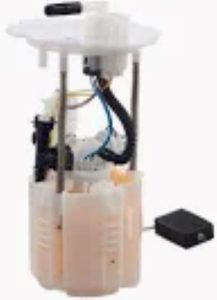Fuel pump noise can be considered normal to a certain degree, but excessive or unusual noises could indicate problems. A low humming noise at engine startup is normal, given that the fuel pump pressurizes fuel for transfer from the tank to the engine. On most vehicles, the pump works very quietly, with noise levels typically less than 60 decibels-usually inaudible inside the cabin. This humming generally means the pump is working as it should, creating and maintaining the required fuel pressure for operation-ordinarily in a range between 30 to 60 psi for conventional engines.
However, loud whining or buzzing noises may be symptomatic of underlying issues. When a fuel pump starts making loud noises, it mostly cannot sustain good pressure due to problems related to clogging or flow restrictions. For example, a clogged fuel filter makes the pump work harder and produces a louder noise. Mechanically, it is said that about 30% of noise complaints on fuel pumps are due to clogged filters, as the restricted flow upsets the smooth operation of the pump.
Running the car on low fuel also contributes to noise levels. When the fuel level is low, the pump has to suck harder; this means that in the process, it draws in air, creating a whining noise. Being in a position to have at least a quarter tank of fuel avoids this problem and prolongs the life of the pump by about 20%.
These can also be causes of strange noises of the pump: electrical problems, such as bad wiring or bad grounding. The loose connections impede the flow of current, giving rise to an interrupted power supply and the buzzing of the pump. A study carried out at some car repair shops reflects that approximately 10% of fuel pump failures are because of electrical faults, hence the need for secure and well-maintained wiring in reliable performance.

Aftermarket high-performance pumps are invariably noisier than their stock counterparts, simply because the flow rates are higher. For a turbocharged or otherwise modified engine, a 255 LPH or greater performance fuel pump and at higher operating pressures may make appreciable noise. For some performance drivers, this may be a small price to pay for improved fuel delivery.
Wear and tear over time are contributing factors to fuel pump noise. This is particularly true of older pumps, usually those of vehicles that run over 100,000 miles, as they develop mechanical issues inside the motor. Thus, the pump becomes louder as internal parts start to wear out. In such cases, replacement of the pump often quiets the noise while returning the consistency in pressure and fuel efficiency.
Knowing what normal noise sounds like can enable the driver to differentiate between normal noise and a noise that indicates a problem. Keeping the fuel filter replaced often can help reduce fuel pump noise and keep the pump running with ease. For more information on maintaining and understanding fuel pump performance see Fuel Pump.